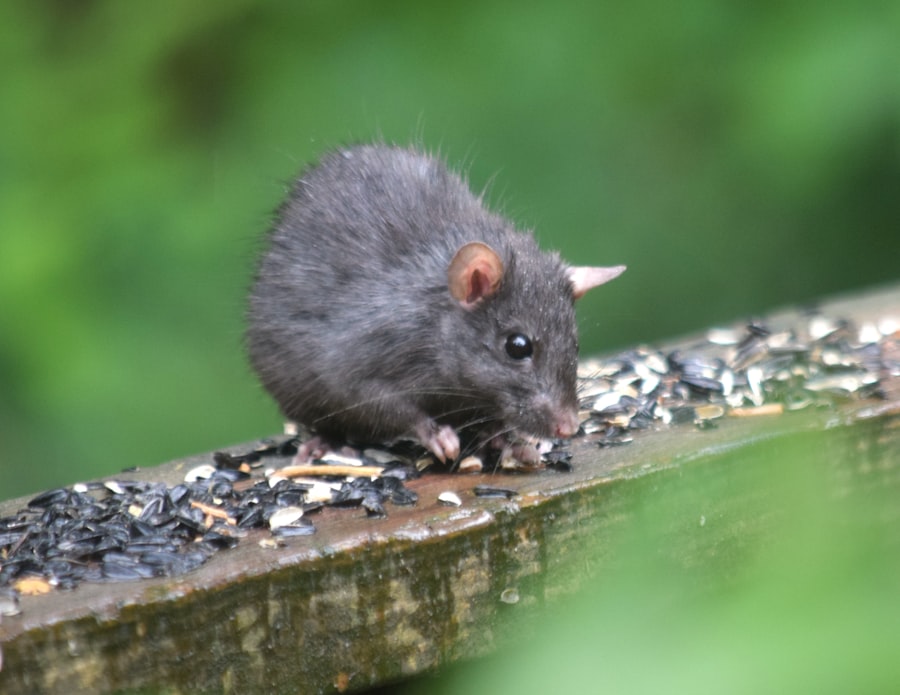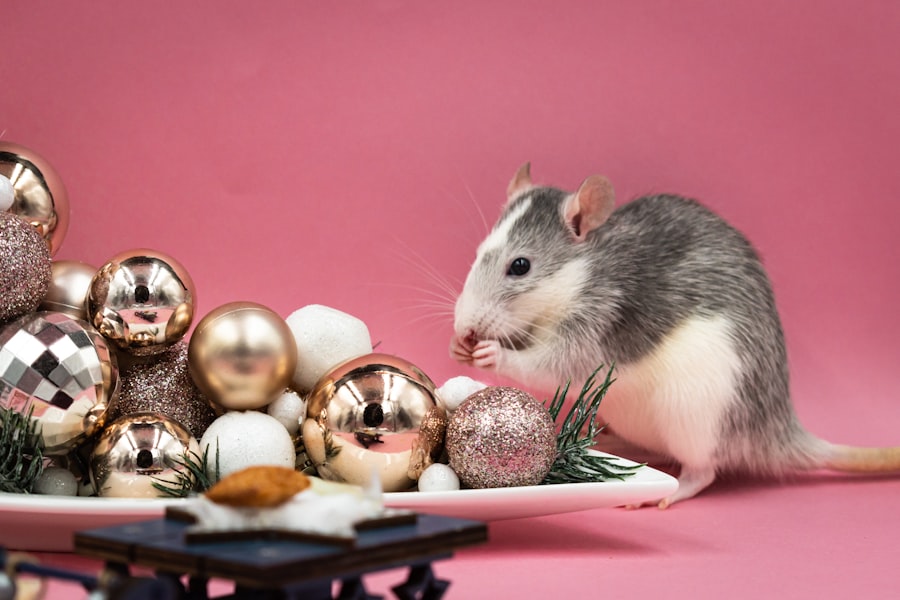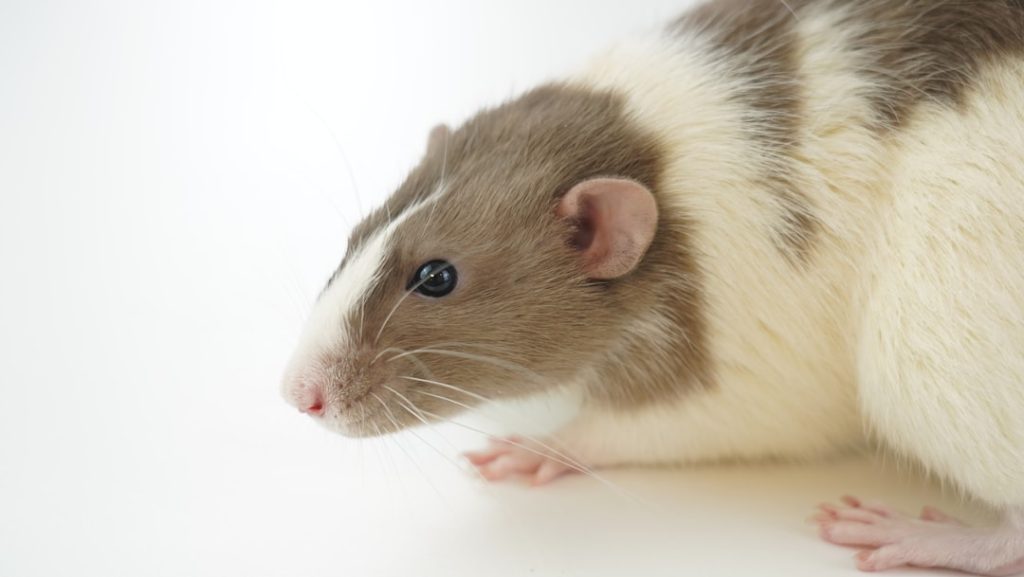The relationship between rats and chickens is complex and potentially harmful to both species. Rats are attracted to chicken coops due to the availability of food and shelter. They may steal eggs, consume chicken feed, and attack young chicks, leading to reduced egg production, poor chicken health, and disease transmission.
Rats can also cause structural damage to coops by gnawing on wood, wires, and insulation, compromising the chickens’ safety and security. Chickens, being natural predators of rats, may peck at them when encountered. However, this interaction can expose chickens to health risks through contact with rat droppings or urine.
The presence of rats in chicken coops can induce stress and anxiety in the birds, resulting in decreased egg production and overall well-being. Chicken owners must understand this interspecies dynamic to effectively manage the situation and ensure the health and safety of their flock. Implementing proper pest control measures and maintaining a clean, secure coop environment are essential steps in mitigating the negative impacts of rat infestations on chicken populations.
Key Takeaways
- Rats and chickens can coexist, but rats can pose a threat to the health and safety of the chickens.
- Implementing rat-proofing measures such as sealing holes and using rat-proof feeders can help prevent rat infestations.
- Proper food storage and waste management, such as using metal containers and cleaning up spilled feed, can deter rats from the coop.
- Utilizing natural predators like cats or terriers can help control rat populations around the coop.
- Maintaining a clean and tidy coop, including regular cleaning and removing clutter, can help prevent rat infestations.
- Regular inspections and maintenance of the coop, including checking for signs of rats and repairing any damage, are essential for preventing infestations.
- Seeking professional help from pest control experts may be necessary if rat infestations persist despite preventive measures.
Implementing Rat-Proofing Measures
Sealing Off Entry Points
Rats are known for their ability to squeeze through small openings, so it is important to thoroughly inspect the coop for any gaps or holes in the walls, floors, and roof. These should be sealed off using materials such as wire mesh, metal flashing, or concrete to prevent rats from gaining access.
Maintaining a Clean Coop
In addition to sealing off entry points, it is important to keep the coop clean and free of clutter. Rats are attracted to areas with plenty of hiding spots and nesting materials, so it is important to regularly remove any debris, old bedding, or unused equipment from the coop. This will help eliminate potential hiding spots for rats and make it easier to spot any signs of infestation.
Regular Inspections and Maintenance
Regular inspections and maintenance are crucial in preventing rat infestations. By regularly checking the coop for signs of rats and taking prompt action to address any issues, you can help prevent infestations and keep your chickens safe and healthy.
Proper Food Storage and Waste Management

Proper food storage and waste management are crucial in preventing rat infestations in chicken coops. Rats are attracted to chicken feed and will readily consume any spilled or improperly stored feed. It is important to store chicken feed in secure containers that are resistant to gnawing and tampering.
Additionally, any spilled feed should be promptly cleaned up to prevent attracting rats. In addition to proper food storage, it is important to manage chicken waste effectively. Chicken droppings are a potential food source for rats, so it is important to regularly clean out the coop and dispose of waste in a secure manner.
This will help reduce the attractiveness of the coop as a potential feeding ground for rats. Proper food storage and waste management are crucial in preventing rat infestations in chicken coops. Rats are attracted to chicken feed and will readily consume any spilled or improperly stored feed.
It is important to store chicken feed in secure containers that are resistant to gnawing and tampering. Additionally, any spilled feed should be promptly cleaned up to prevent attracting rats. In addition to proper food storage, it is important to manage chicken waste effectively.
Chicken droppings are a potential food source for rats, so it is important to regularly clean out the coop and dispose of waste in a secure manner. This will help reduce the attractiveness of the coop as a potential feeding ground for rats.
Utilizing Natural Predators
One effective way to control rat populations in a chicken coop is by utilizing natural predators such as cats or dogs. Cats are known for their hunting instincts and can help keep rat populations in check by actively hunting and catching them. Similarly, dogs with a strong prey drive can also be effective at deterring rats from entering the coop.
In addition to cats and dogs, other natural predators such as owls or snakes can also be beneficial in controlling rat populations around the coop. Owls are nocturnal hunters that prey on rodents such as rats, while snakes can help keep rat populations in check by hunting them in their burrows. One effective way to control rat populations in a chicken coop is by utilizing natural predators such as cats or dogs.
Cats are known for their hunting instincts and can help keep rat populations in check by actively hunting and catching them. Similarly, dogs with a strong prey drive can also be effective at deterring rats from entering the coop. In addition to cats and dogs, other natural predators such as owls or snakes can also be beneficial in controlling rat populations around the coop.
Owls are nocturnal hunters that prey on rodents such as rats, while snakes can help keep rat populations in check by hunting them in their burrows.
Maintaining a Clean and Tidy Coop
Maintaining a clean and tidy coop is essential in preventing rat infestations. Rats are attracted to areas with plenty of hiding spots and nesting materials, so it is important to regularly remove any debris, old bedding, or unused equipment from the coop. This will help eliminate potential hiding spots for rats and make it easier to spot any signs of infestation.
In addition to removing clutter, it is important to regularly clean out the coop and dispose of waste in a secure manner. Chicken droppings are a potential food source for rats, so it is important to regularly clean out the coop and dispose of waste in a secure manner. This will help reduce the attractiveness of the coop as a potential feeding ground for rats.
Maintaining a clean and tidy coop is essential in preventing rat infestations. Rats are attracted to areas with plenty of hiding spots and nesting materials, so it is important to regularly remove any debris, old bedding, or unused equipment from the coop. This will help eliminate potential hiding spots for rats and make it easier to spot any signs of infestation.
In addition to removing clutter, it is important to regularly clean out the coop and dispose of waste in a secure manner. Chicken droppings are a potential food source for rats, so it is important to regularly clean out the coop and dispose of waste in a secure manner. This will help reduce the attractiveness of the coop as a potential feeding ground for rats.
Regular Inspections and Maintenance

Identifying Rat Activity
It is important to regularly inspect the coop for any signs of rat activity such as droppings, gnaw marks, or burrows.
Sealing Off Entry Points
Any potential entry points should be sealed off using materials such as wire mesh, metal flashing, or concrete.
Maintenance and Repairs
In addition to regular inspections, it is important to maintain the coop by repairing any structural damage caused by rats such as gnawed wood or wires. This will help ensure that the coop remains secure and free from potential entry points for rats.
Seeking Professional Help if Necessary
If rat infestations persist despite implementing preventive measures, it may be necessary to seek professional help. Pest control professionals have the expertise and tools necessary to effectively address rat infestations in chicken coops. They can conduct thorough inspections of the coop, identify potential entry points for rats, and implement effective control measures such as baiting or trapping.
In addition to seeking professional help for rat infestations, it may also be beneficial to consult with a veterinarian if there are concerns about potential health risks for the chickens due to rat activity. A veterinarian can provide guidance on how to ensure the health and well-being of the chickens in light of a rat infestation. If rat infestations persist despite implementing preventive measures, it may be necessary to seek professional help.
Pest control professionals have the expertise and tools necessary to effectively address rat infestations in chicken coops. They can conduct thorough inspections of the coop, identify potential entry points for rats, and implement effective control measures such as baiting or trapping. In addition to seeking professional help for rat infestations, it may also be beneficial to consult with a veterinarian if there are concerns about potential health risks for the chickens due to rat activity.
A veterinarian can provide guidance on how to ensure the health and well-being of the chickens in light of a rat infestation.
If you’re looking for ways to keep rats away from your chickens, you may want to check out this article on how to insulate a chicken coop. Insulating your coop can help prevent rats from getting in and causing problems for your flock.
FAQs
What are the dangers of rats around chickens?
Rats can pose a threat to chickens by stealing their eggs, eating their feed, and even attacking young chicks. Additionally, rats can spread diseases to both chickens and humans.
How can I keep rats away from my chicken coop?
To keep rats away from your chicken coop, it is important to keep the coop and surrounding area clean and free of food sources. This includes securing feed in rodent-proof containers, removing any spilled feed, and keeping the coop free of debris and clutter where rats can hide.
What are some natural methods to deter rats from chickens?
Some natural methods to deter rats from chickens include using essential oils such as peppermint or eucalyptus, as well as planting mint or lavender around the coop. Additionally, keeping a cat as a natural predator can help keep rats away.
Are there any commercial products to keep rats away from chickens?
Yes, there are commercial products such as rodent-proof feeders, traps, and repellents that can help keep rats away from chickens. It is important to follow the instructions and use these products safely around the chickens.
Why is it important to keep rats away from chickens?
Keeping rats away from chickens is important to protect the health and well-being of the chickens, as well as to prevent the spread of diseases to humans. Additionally, reducing the presence of rats can help maintain a clean and sanitary environment for the chickens.
Meet Walter, the feathered-friend fanatic of Florida! Nestled in the sunshine state, Walter struts through life with his feathered companions, clucking his way to happiness. With a coop that’s fancier than a five-star hotel, he’s the Don Juan of the chicken world. When he’s not teaching his hens to do the cha-cha, you’ll find him in a heated debate with his prized rooster, Sir Clucks-a-Lot. Walter’s poultry passion is no yolk; he’s the sunny-side-up guy you never knew you needed in your flock of friends!







